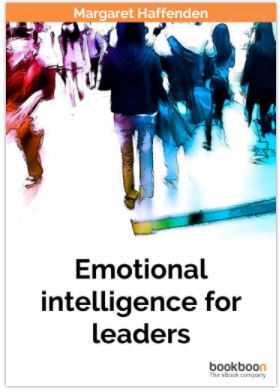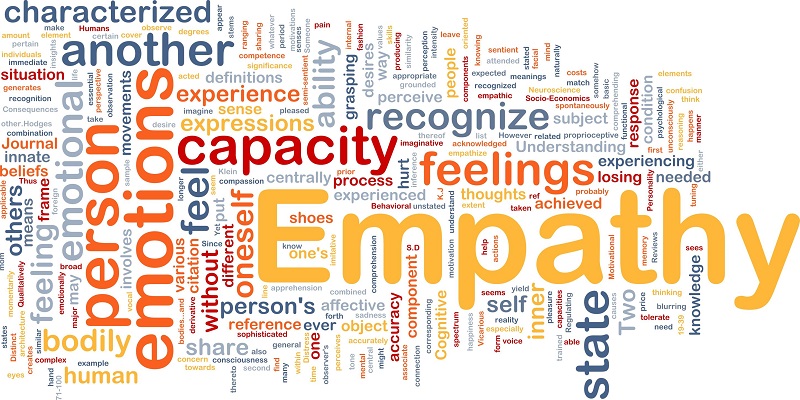Great Leadership: Take a Look at Yourself

 Great leaders aren’t great only because of their expertise. They are great because they inspire those they lead to do great things, to fully explore their potential. How do you become such a leader? Of course, there are many varieties of great leadership – but they all have one common denominator. It’s called “emotional intelligence”.
Great leaders aren’t great only because of their expertise. They are great because they inspire those they lead to do great things, to fully explore their potential. How do you become such a leader? Of course, there are many varieties of great leadership – but they all have one common denominator. It’s called “emotional intelligence”.
This core asset of great leadership is made of three building blocks we will take a closer look at in three different articles. First, in this article, you will learn how you can be more aware of how you feel in certain situations. In the second article, we’ll discuss how you can use that awareness to control your emotions. And in the third and last article, we’ll focus on the emotions of the people you’re leading – and on the importance of empathy.
The significance of knowing yourself for great leadership
At this point, you may not yet be convinced that getting in touch with your own feelings is what you need to be a good leader. You need to know why. Well, here are three reasons to get you started:
- You need people to trust you.
Therefore, they need to see that you are being honest with yourself and are able to look at yourself with all the good and all the bad parts. If your direct reports don’t trust you, they won’t communicate with you openly and honestly. And bad communication means bad productivity and bad performance. - You need people to respect you.
This may sound contradictory, but it’s not: When your direct reports see that you can acknowledge and deal with your own emotions, it doesn’t make you look weak. Much to the contrary: People see that you’re an honest human being they can respect. - You need to be in control:
If you aren’t aware of your feelings in certain situations, you aren’t in control of those situations – your feelings are. That can be quite dangerous when you’re a leader and a decision maker.
This is what you need to do
Happily, becoming more sensitive towards your own emotional state in certain situations is something you can learn and get better at – if you set your mind to it and accept that it will be a long journey and a gradual learning process. It all begins with taking a long, hard look into the mirror:
- Come up with your three greatest personal strengths and your three greatest personal weaknesses. Yes, this sounds like a standard task at a job interview, but it’s important for what follows next.
- Now try to remember specific moments in the past where each of your strengths and weaknesses has played a major role. Then reflect on each moment and try to recollect how this moment made you feel.
- Present your self-assessment to someone you trust, like a close colleague or friend. Ask them to verify or falsify your views.
Understanding your own body language
We often don’t realize it, but our bodies are great, sensitive seismographs of our emotional states. A sigh of relief, tightly pressed lips, a paling face – all those are signs we often recognize in other people but don’t when they pertain to ourselves. If you make an effort to become more aware of your involuntary physical reactions in emotionally charged situations and learn to decipher what each of those reactions means, you will acquire another powerful tool for being more aware of your emotions.
Identifying behavioral patterns
Let’s go back to those moments connected with your strengths and weaknesses. You already identified how you felt during those moments. Now try to remember what it was that made you feel this way. Was there a specific trigger? Try to think of other situations that made you feel similarly (for instance “irritated”) and see if you can identify an underlying pattern. Does it always irritate you when people talking to you don’t get to the point immediately? Do you always feel flattered when someone compliments your physique? It’s very helpful to be aware of those triggers, as we will learn in the second article of this series.
Becoming aware of how you feel at any given situation and of what it is that makes you feel that way is an important foundation for the other two building blocks of emotional intelligence. Without this skill, you can’t succeed at the other two.
In the next article, you will learn to use your newly acquired emotional self-awareness to control your feelings in specific situations: Great Leadership: Take a Look at Yourself. Also read article number three Great Leadership: See Things Through Someone Else’s Eyes.



